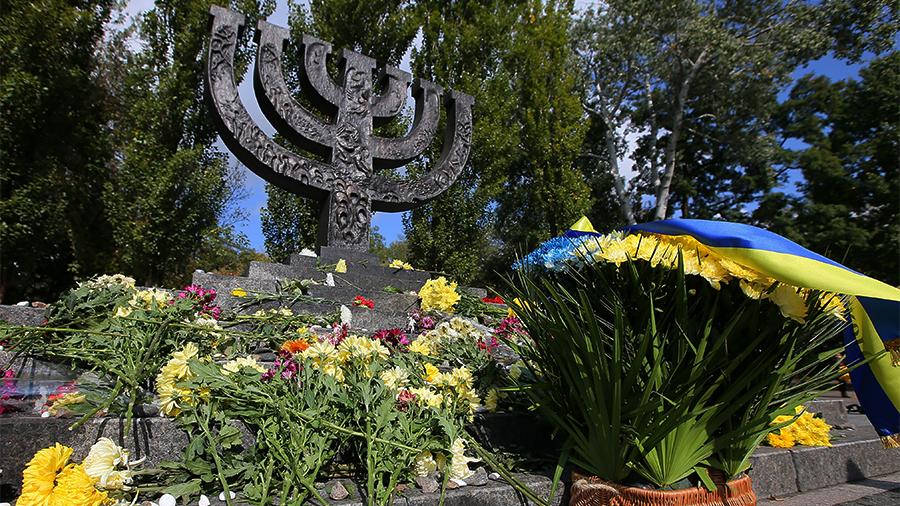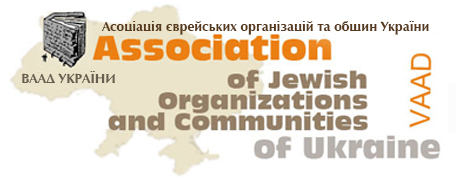The Ukrainian Cultural and Academic Community Has Published an Appeal about the Commemoration of Babyn Yar

Photo: RIAN
Representatives of the Ukrainian cultural and academic community have appealed to President Volodymyr Zelensky, Prime Minister Denys Shmyhal, and Kyiv Mayor Vitali Klitschko with the demand for the state to take full responsibility for the creation of the Babyn Yar National Memorial Complex.
The appeal is a response to the scandal around the activities of the Babyn Yar Holocaust Memorial Center (BYHMC), founded in 2016 through the initiative and funding of Russian businessmen Mikhail Fridman, Pavel Fuks, and German Khan. From the very beginning, this project prompted fundamental complaints from representatives of the Ukrainian academic community and the Jewish community about the unacceptable ideology imposed on the project by its Russian sponsors and the chosen building site, located on the territory of former cemeteries, including a Jewish cemetery.
The appeal’s signatories demand that the Ukrainian government take an active position in implementing the state’s memory politics, including the following:
● That the state facilitate the completion of work on and a widespread public discussion of the Comprehensive Babyn Yar Memorial Design Concept (in Ukrainian), which has been prepared by a working group of academics from the Institute of the History of Ukraine of the National Academy of Sciences of Ukraine, commissioned by the Ministry of Culture and the Babyn Yar National Historical Memorial Park.
● Submit the finalized Comprehensive Design Concept to the Cabinet of Ministers of Ukraine for official adoption.
● Designate the Babyn Yar National Historical Memorial Park as the official state institution responsible for implementing the approved design. To create a Supervisory Board, in which representatives of Ukrainian civil society, state institutions, the academic community, and the project’s donors would be on equal footing.
● Designate the Ukrainian Institute of National Rememberance (UINR) as the state institution responsible for commemorating Babyn Yar, in accordance with the Comprehensive Design Concept approved by the Cabinet of Ministers.
● Allocate the funds necessary to complete the Comprehensive Babyn Yar Memorial Design Concept from the state budget for 2021 and onward.
● Create a special fund at the Babyn Yar National Historical Memorial Park, to which donations can be made to financially support the state commemoration of Babyn Yar.
● Finally, that the state implement a moratorium on any new construction in Babyn Yar and the immediate vicinity, including cemeteries and other protected areas.
The appeal’s authors emphasize that all Ukrainians, as a political nation, bear responsibility for preserving the memory of the tragedies that have taken place on Ukraine’s territories. Ukrainians’ ability to carry out the task of commemorating these sites is a global challenge and a contemporary test of their national and political maturity, and concurrently a test of whether they have liberated themselves from a post-colonial mindset.
As of the evening of May 22, 2020 over 720 signatories joined the appeal, including:
Current and Former Members of the “December 1st” Initiative Group Viacheslav Briukhovetsky, Ola Hnatiuk, Volodymyr Yermolenko, Yevhen Zakharov, Yosyf Zisels, Ihor Kozlovsky, Myroslav Marynovych, Vsevolod Rechytskyi, Ihor Yukhnovs’kyi, Yaroslav Yatskiv;
Ukrainian human rights activists and former political prisoners Mykola Horbal’ and Inna Cherniavska-Naboka;
Archbishop Ihor Isichenko;
Members of the Ukrainian Parliament Volodymyr Viatrovych, Mustafa Dzhemilev, and Mykola Kniazhytskyi;
Head of the Mejlis of the Crimean Tatar People Refat Chubarov;
Ukrainian writers Mark Belorusets, Natalka Bilotserkivets, Andrii Bondar, Nadiya Herbish, Oksana Zabuzhko, Irena Karpa, Marianna Kiyanovska, Andrii Kurkov, Tymur Lytovchenko, Andrii Liubka, Bohdana Matiyash, Vasyl Makhno, Katja Petrowskaja, Petro Rykhlo, Mykola Riabchuk, and Ostap Slyvynsky
Ukrainian historians Alla Atamanenko, Oleh Bazhan, Polina Barvinska, Volodymyr Birchak, Hennadii Boriak, Viktor Danylenko, Petro Dolhanov, Kateryna Dysa, Oleksii Haran, Yakiv Hershkovych, Maksym Hon, Oleksandr Honcharov, Yaroslav Hrytsak, Ihor Hyrych, Oksana Kis, Vasyl Kmet, Kateryna Kobchenko, Olha Koliastruk, Serhii Kot, Stanislav Kulchytsky, Oleksandr Kucheruk, Oleksandr Lysenko, Vitalii Masnenko, Volodymyr Melamed, Yefym Melamed, Mykhailo Mitsel, Ivan Monolatii, Alexander Motyl, Nadia Myronets, Vitalii Nakhmanovych, Tetiana Pastushenko, Ivan Patryliak, Yohanan Petrovsky-Shtern, Anatolii Podolsky, Yana Prymachenko, Kateryna Smahlii, Olena Stiazhkina, Yuri Shapoval, Natalia Shlikhta, Viktoria Venherska, Tamara Vronska, Leonid Zashkilniak, Larysa Yakubova, Oleksii Yas, and Hennadii Yefymenko;
Diplomats Danylo Lubkivsky, Volodymyr Ohryzko, and Volodymyr Pyzurko;
Ukrainian journalists and public intellectuals Leonid Goldberg, Oleksandr Zinchenko, Zoya Kazanzhi, Yuri Makarov, Vitali Portnikov, Olha Skorokhod, Tetiana Teren, and Serhii Tykhyi;
Ukrainian philosophers Yevhen Bystrytskyi, Liudmyla Filipovych, Serhiy Hrabovsky, Vakhtang Kebuladze, Natalia Kryvda, Taras Liutyi, Zoya Shved, Kostiantyn Sihov, and Viktor Yelensky;
Ukrainian editors and publishers Leonid Finberg, Oksana Forostyna, Tetiana Khorunzha, Oleksandra Koval, Andrii Mokrousov, Rostyslav Semkiv, and Taras Voznyak;
Ukrainian educators and researchers Oleh Beley, Leonid Bilyansky, Yuri Chekan, Taras Dobko, Volodymyr Dubrovsky, Serhiy Entis, Maria Fedurko, Yaroslav Harasym, Oleksandr Hladun, Pavlo Hol’din, Yuri Ilyin, Volodymyr Kazarin, Borys Khersonsky, Pavlo Khobzei, Leonid Khrystoforov, Nataliya Klymovska, Serhii Kvit, Volodymyr Kulyk, Yulia Ladygina, Yevhen Mahda, Svitlana Petrovska, Myron Petrovsky, Henad Poberezhny, Rev. Bohdan Prakh, Iryna Prelovska, Yurko Prokhasko, Serhii Rendziniak, Serhiy Riabchenko, Maria Rudakevych, Liudmyla Sholokhova, Ihor Skochylias, Eleonora Solovei, Ihor Soliar, Oleksandr Sushko, Liubomyr Tarnovsky, Oleh Turii, and Serhiy Utyevsky;
Ukrainian architects Oleksandr Antonets and Mykhailo Hershenzon;
Ukrainian artists Iryna Klymova, Oleksandra Krypyakevych, Vira Vaisberg, and Matviy Vaisberg;
Ukrainian museum specialists Olha Druh, Olha Honchar, Olena Honcharuk, Liudmyla Hubianuri, Ivan Kozlenko, Mykola Kushnir, Tetiana Liuta, Iryna Meleshkina, Olha Melnyk, Danylo Nikitin, Svitlana Ostapova, Vladyslav Pioro, Nadia Polianska, Ihor Poshyvailo, Oles Poshyvailo, Kateryna Romanova, Pavlo Skavronsky, and Ihor Tymets;
Ukrainian and Jewish-Ukrainian activists Mykhailo Basarab, Dmytro Bilan, Bohdan Chervak, Halya Coynash, Marta Farion, Yuri Honcharenko, Iza Chruślińska, Olha Kobets, Mykola Kocherha, Andrii Levus, Oleksandra Matviichuk, Serhiy Melnychuk, Yaroslav Rushchyshyn, Roman Spektor, Oleksandr Stepanenko, Orest Stetsiv, Taras Stetskiv, Oleksandra Supriazhenko, Meilakh Sheikhet, Yevhen Yasinsky, and Bohdan Yatsun.
The full text of the appeal is available on the website of the journal Krytyka.
Signatures under the appeal are still being collected—all interested parties may add their name by following this link.
nike fashion



.png)

